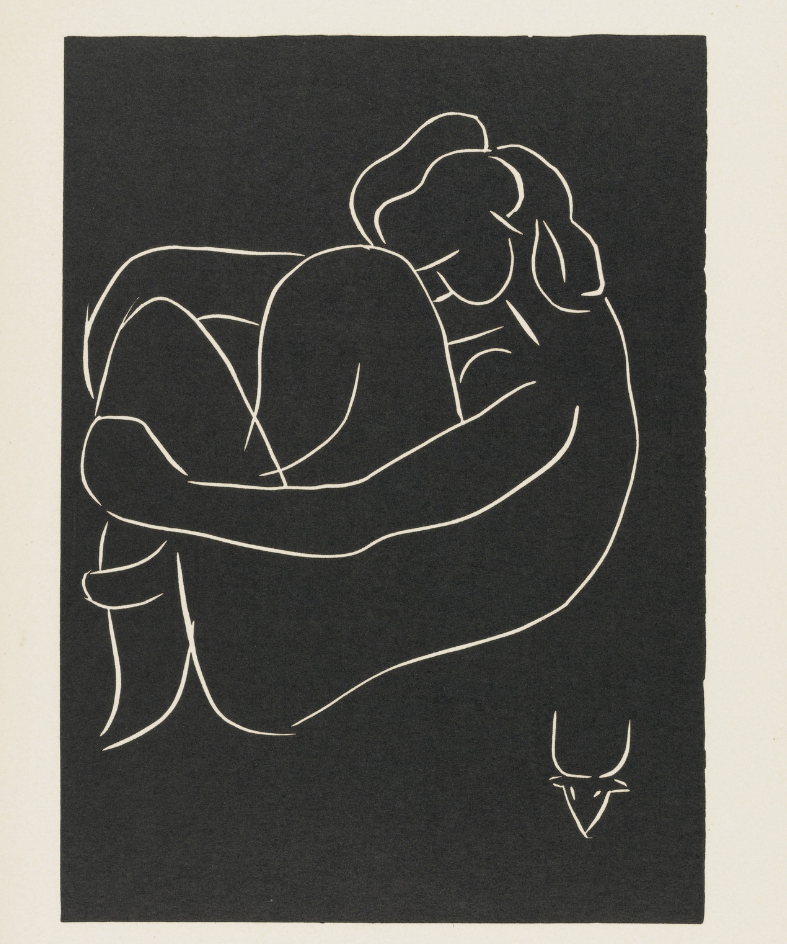Loneliness & Academic Life
The Philosophers’ Cocoon has had a pair of posts on loneliness in the academy recently.

[Henri Matisse, “…Alone, at the Foot of the Great Locust Tree”]
That was followed by a second post soliciting advice for academics dealing with loneliness.
I’d encourage readers to head over to The Cocoon to check these out and contribute to the discussions there. Discussion is welcome here, too. If there are philosophy-specific causes of loneliness, or resources specifically for philosophers grappling with loneliness, that would be useful to hear about, in addition to remarks on academic loneliness more generally, or loneliness in general in the early 21st Century.


It seems many canonical philosophers were profoundly lonely from an early age, with the premature loss of a parent:
“Of the twenty-two philosophers listed, two had lost both parents and eleven at least one by the age of six. In only six cases did both parents survive until the philosopher was fifteen. But the mere survival of parents may not shield children from the severe experience of separation. … Painful separations are no doubt common in early life, but it seems nevertheless notable that at least twenty of the twenty-two philosophers may be supposed to have undergone them.
They certainly fit the generalization, proposed by psychologists, that persons of exceptional accomplishment have suffered exceptionally heavy parental loss in childhood.”
Ben-Ami Scharfstein, The Philosophers: Their Lives and the Nature of Their Thought (Oxford, 1980), pp. 345-6.
I don’t know how these profound losses may compare to the loss of a dissertation advisor.
I feel bad for any philosopher who is lonely of course. But for what it’s worth I find the exact opposite is the problem — constant demands on my social time (e.g., visiting speaker dinners, conference dinners, workshops, coffees lunches, blah blah blah) that socialising with philosophers pretty much sucks up too much time. This is not to say the philsooheprs are bad company either, in fact, the conversations are generally fun and interesting, it’s just that there’s too much of it that pulls in all directions.
This description resonates with me too – if anything , the social demands on time are just incessant in philosophy. Friendships and fun are important but with never ending conferences and workshops and expectations to attend the dinners etc, some time alone to think would be a breath of fresh air!
These are two sides of the same coin (or perhaps two extemes of a single dimension). You can do all of the academic-activity-as-social-activity things if you want. But the catch is, they’re social things without being a full social life. And if you do all of them, you’ll feel like you don’t have time for a life outside of academics. Or you can have a fulfilling social life outside of academics, and have FOMO about missing speakers, dinners, etc. (assuming you enjoy them in the first place). I’m sure there’s some Aristotelian mean that can balance the two, but going by my experience (as well as those of others who claim loneliness), it’s difficult to find!
There are people who have FOMO about missing speaker dinners? What a world we live in.
The second best thing about being a VAP is being justified in skipping any and all speaker events one wishes.
The best thing is being justified in skipping any and all faculty meetings.
What is a VAP?
Visiting Assistant Professor. It’s a temporary position typically lasting a year, maybe two.
I don’t feel lonely, but a life with philosophers knocking down my door to talk to me is also completely alien to me. Not sure if it’s relevant, but I should add that I’m a real asshole.
it’s the miserable labor conditions eroding community, you knuckleheads
☕🥄
As a total introvert, I can say that I chose this path appealed to me in large part because of its status as (arguably) the least social of white collar jobs.
Nietzsche once wrote in a letter to his mother that hers was the only birthday greetings he’d received that year, “as is the foremost condition of a philosopher.” (Selected Letters of Friedrich Nietzsche (Hackett Classics))